Meditation
Meditation has certainly grown in popularity, especially over the last 20 years. There is so much evidence now to support the benefits of regular meditation that I won't go in to that here. If you're interested a quick google search will provide more than enough information. Instead we are going to look at one particular method of meditation known as Xin Zhei Fa or the Heart Purifying Method.
Xin Zhei Fa
In Chinese medicine the heart is given a special position, you'll often hear the heart referred to as the Emperor or Empress. This analogy is used to denote the importance of the heart, and that it's role in disease and healing can't be underestimated.
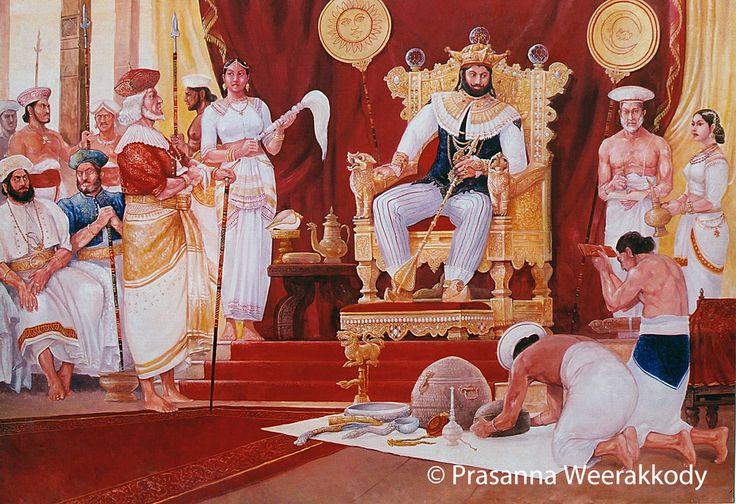
Most patients have probably heard me say the phrase "If the Emperor is happy everybody is happy, if the Emperor is depressed then everybody is depressed". This commonly used phrase again points to the idea that the heart plays a pivotal role in not only our emotional wellbeing but also our physical health. This topic deserves a deeper exploration, but right now all I want to get across is that the heart has a special role to play and so the process of purifying the heart would be deeply beneficial.
So what is purification of the heart?
This method is based on the writings of Zhuang Zi, who is considered one of the most important figures within philosophical Taoism. Zhuang Zi when defining the method gives this answer,
"Your will must be one. Do not listen with your ears, but with your heart. Do not listen with your heart but with your breath. Ears can only listen. the heart can only contemplate, but the breath is the emptiness, receptive to all things. Tao is related to the emptiness and the emptiness purifies the heart".
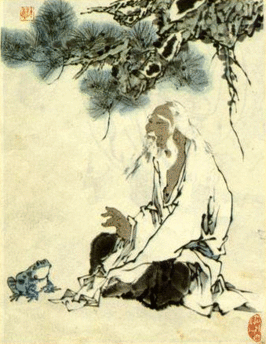
Although only a few lines the method is there if we are willing to look a little more closely. Lets start at the beginning and take the first sentence "Your will must be one". For your will to be one it must be concentrated on a single goal, your will should be focused on the breath. It's worth noting here that an overly focused mind is considered a mistake and a mind not focused is considered a mistake. The kind of focus we are looking for is the difference between holding a stone tightly in your hand and holding a stone with it placed gently onto the palm. In both cases we are holding a stone, however the second example is focused but relaxed. In a practical sense this means relax, don't get to serious. Meditation should be natural, especially within this particular style. Most of the mistakes come from trying to push to hard, trying to be the best or get it perfect. Far better to approach meditation as a child would approach play, open and inquisitive.
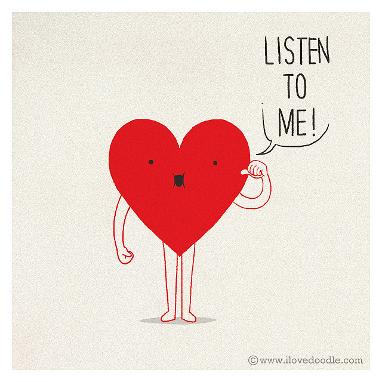
Next we have the phrase "Do not listen with your ears but with your heart". Here the ears can be related to the 5 senses or the 5 thieves as they are often called. At first we listen to the breath and the body with our ears, and other sense organs, we feel and hear the breath moving in and out. However over time Zhuang Zi is saying begin to listen with your heart instead. Listening with the heart has been described as a single inner sense. Unfortunately with meditation these things can not be completely grasped without
practice and experience. But again remember this is a natural process and the first stage is concentration, hence focusing on the breath. Overtime with practice we will naturally move into listening with the heart. Once we can listen with the heart we have moved to the second stage, contemplation. At this point we no longer feel and hear the breath with the 5 senses, instead we experience the breath through the one internal sense. At this stage our awareness has moved beyond the physical body and instead we begin to identify with the movement of breath. Overtime through this process we begin to experience that we are only consciousness. However this is not a lesson learnt from a book or from watching a video, meditation offers first hand experience of who you actually are. Experiences that can be very hard to describe if you've not been there. This is why Lao Tzu is quoted as saying "Those who talk do not know and those who know do not talk"
Eventually with practice and dedication you may even reach stage 3, known as fusion. At this stage we are encouraged not to listen with the heart but with the breath. The breath is considered emptiness just as the Tao is, so through the breath we become limitless, we are receptive to all possibilities, residing within this emptiness purifies the heart.
I've only shared briefly the theory behind this method to give you an understanding on its lineage and basic components. There is of course more that can be said but really the most important aspect of meditation is to actually do it. so lets jump in to a typical mediation session.
Getting Started
Posture: The most important aspect of posture is relaxation. If you're a regular meditator then a full or half lotus is fine as long as you can relax in that position. Personally due to the limitations of my spine I use a chair. You can even do this meditation lying down, however always be careful not to fall asleep. If possible I would suggest a seat with no back, however if that position is uncomfortable for you then by all means use a chair that supports you where needed. There are no prizes here for the most flexible position you can get your body into, our only goal is relaxation.
Focus: Once we are comfortable we slowly bring our awareness to the breath. Listen to the breath, feel the breath and let your awareness become one with it. Now of course many thoughts may pop in there, pulling your awareness this way and that. It can often feel frustrating but remember this is very normal, in fact if this doesn't happen I'd love to know your secret. So take heart in the fact you are not alone and this does pass. Remember to approach this as a child would approach play time. Be open and know its a process, you
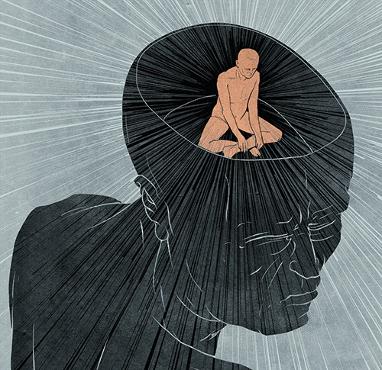
may even be surprised how much it will still help to relax and calm the mind. As the old Buddhist saying goes if you don't have time for 20 minutes a day of meditation you need 40.
For those of you who have read the piece I wrote on the Zuo Wan Lun this is where we begin to use the concept of sitting and forgetting. When the thoughts pop up about this and that just forget them, overtime forget more and more, until hopefully, eventually you forget yourself. That may sound like a scary idea, but in another way you can say you've also found yourself. Now of course its probably unlikely that any of us would reach such a place, but the ability to forget even for a short while and focus the awareness internally is an extremely valuable skill. If your goal is more energy, less stress and more focus this kind of skill should at least intrigue you. There's a lovely quote by Lao Tzu about how one reacts when confronted with the truth or the Tao:
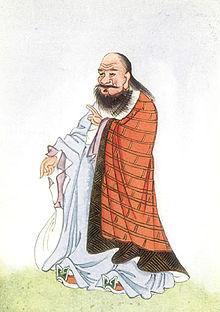
"The superior student listens to the way and follows it closely.
The average student listens to the way and follows some and some not.
The lesser student listens to the Way and laughs out loud.
If there were no laughter it would not be the Way"
I have to admit it's the last line that makes that quote for me, it's funny because it's true.
And there you have it, no mudras or special breathing techniques, you don't even have to sit in a lotus position. All these things are something for the mind to grasp onto, best to forget them. I know for many of you in the Yoga tradition this may be a little different, even within Taoism the internal alchemy schools will use different techniques to try and speed progress. I did learn one of these styles for a number of years, however my own preference has been to return to the source. The path we are looking at today is that of Lao Tzu or what is sometimes termed the water school. The basic tenant of this approach is you're already there, stop getting in the way. I believe this path although not as glamorous as many others leads to fewer dead ends and cuts straight to the issue. For Taoism the issue is who am I or what is my nature. There is nothing external to you that can tell you that, there are no special secret herbs I can give you or Qi moving exercises. What you can do is sit in silence for a while, even just 10 minutes and begin slowly to quiet the mind through gentle focus on the breath. We then let the process unfold, in Taoism they often say water the roots to open the flower. We are watering the roots the flower will open by itself, the nature of the process will unfold as you progress, and of course I am always here for any questions.
For those of you interested in more than improved energy and mental wellbeing I'll leave you with a very short little gem of a Buddhist quote. I forget now where I heard it but it had quite the impact when I began to contemplate it.
"If you can observe it, it's not you"